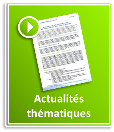Mountain farming and rural areas in Europe
Farming systems respectful of the environment and anchored in their territory
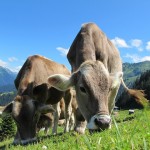 Mountain agriculture is characterized by extensive low input and low output farming systems, oriented towards specific productions of high quality. These farming systems are dominated by livestock production, based on grazing, and by permanent crops (orchards, vineyards…).
Mountain agriculture is characterized by extensive low input and low output farming systems, oriented towards specific productions of high quality. These farming systems are dominated by livestock production, based on grazing, and by permanent crops (orchards, vineyards…).
Farms are in general smaller compared to national averages of respective countries. Pluri-activity is strongly represented, and small farmers are numerous, especially in the Carpathians where semi-subsistence farming still dominates.
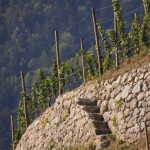 Agriculture finally very often represents the basis of the local economy and is closely inter-related to other economic sectors, such as agri-food industry and tourism.
Agriculture finally very often represents the basis of the local economy and is closely inter-related to other economic sectors, such as agri-food industry and tourism.
Mountain agriculture represents 18% of agricultural holdings, 15% of agricultural utilised area and 15% of agricultural workforce in Europe. Because of the geographical constraints to farming leading to overcosts, work productivity is on average lower by 28% in mountain areas compared to less favoured areas and by 40% compared to low lands.
Mountains in the common agricultural and rural development policy (CAP)
The CAP is the only European policies offering a specific approach for mountain areas and differentiated measures. Several measures specifically concern mountains.
Under Pillar 1 of the CAP, mountains benefit from a system of direct payments per hectare for areas with natural constraints. Moreover, the “green” dimension of the CAP (introduced in 2015), aimed at rewarding farmers for the maintenance of the landscape and the biodiversity, as well as the mitigation of climate change effects, could help mountain farming. Indeed, one of the compulsory agricultural practices is the maintenance of existing permanent grasslands, and farms with a significant part covered by fallow land, grassland, or crops under water are exempted of the obligation to have an ecological focus area on arable land. To complement the compulsory Green Payments and voluntary Natural Constraint Support, the small farmers scheme is also compulsory for Member States to implement.
In Pillar 2, other rural development policy measures interesting for mountain areas include: 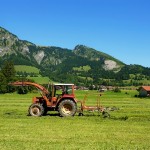
- Measure 3 “Quality schemes”,
- Measure 8 “Investment in forest areas”,
- Measure 10 “Agri-Environment-Climate measures”,
- Measure 13 “Payments to Areas facing Natural Constraints”, etc. Mountains are explicitly targeted in this last measure in order to compensate farmers for additional costs and loss of income resulting from physical characteristics of mountainous areas.
However, the new flexibility of the CAP allows Member States to write up a tailored policy, which in practice can lead to very different approaches to the mountain areas from one Member State to another. Indeed, a mountain sub-programme is available to MS although none of them chose to implement it.
- For more information: EARDF regulation and “A new CAP – Mountains of opportunities” brochure.
Our actions
Policy – representation
Euromontana represents mountain communities through networking activities implemented to define common positions and by participation in official EU consultative bodies. Euromontana is in particular an expert member of the Civ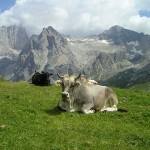 il Dialogue Groups on the CAP, Rural development, and Quality and Promotion organised by DG AGRI of the European Commission.
il Dialogue Groups on the CAP, Rural development, and Quality and Promotion organised by DG AGRI of the European Commission.
Euromontana also keeps in close contact with MEPs of the AGRI Committee as well as with the NAT section of the Committee of the regions and of the European Economic and Social Committee.
Following the CAP in the 2014-2020 programming period
Starting from January 2015, the new CAP aims to enhance sustainability and competitiveness while it continues to foster the market orientation of the European agriculture. The whole policy has been completely reviewed and it offers new interesting opportunities for mountain farmers and rural actors.
Looking ahead to the 2021-2027 programming period
In the light of a changing European context (COP21, new trade agreements, m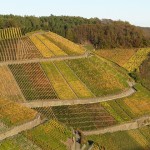 arket fluctuations, etc.) and as part of its working programme for 2017, the Commission organised a wide consultation on simplification and modernisation of the CAP to maximise its contribution to the Commission’s ten priorities and to the Sustainable Development Goals (SDGs). The consultation “Modernising and Simplifying the Common Agricultural Policy (CAP)” was launched in February 2017.
arket fluctuations, etc.) and as part of its working programme for 2017, the Commission organised a wide consultation on simplification and modernisation of the CAP to maximise its contribution to the Commission’s ten priorities and to the Sustainable Development Goals (SDGs). The consultation “Modernising and Simplifying the Common Agricultural Policy (CAP)” was launched in February 2017.
- See Euromontana’s response to the consultation here
For more information on Euromontana’s lobbying activities and previous positions during the past programming periods, please click here to reach our page “Euromontana and the CAP since 2008“.
Rural development
On 6 September 2016, DG AGRI presented the Cork 2.0 Declaration “A better life in rural areas”. The discussions organised with the stakeholders during this 2-day conference fed the final declaration in a bottom-up approach.
At Euromontana, we believe that a good implementation of the Cork Declaration would only be possible with the close collaboration between stakeholders and the European Commission. Thus, we have prepared a document to present some contributions of mountain areas for the implementation of the Cork Declaration. This document explained how our network is already doing some efforts for the implementation of this Declaration and how we will continue these efforts in the near future.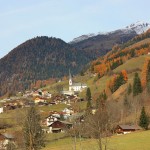
In addition, we encourage the European Commission to transpose the Cork priorities into a real Agenda for rural areas that Euromontana has advocated for several years with, notably, the members of the European Countryside Movement; the Members of the European Parliament of the RUMRA (Rural, Mountainous and Remote Areas) Intergroup and the Committee of the Regions.
Coordination and networking
The European network for rural development
Euromontana is one of the 12 European organisations participating in the European Network for Rural Development. Together with representatives from the Member States (representatives of ministries and coordinators of National Rural Networks), Euromontana contributes to the reflection on improving delivery of rural development policies and exchanging best practices.
Euromontana is a member of the ENRD Steering Group as well as of the LEADER/ CLLD and innovation subgroups. Euromontana has also been part in other expert groups of the ENRD such as the Focus Groups on rural SMEs, or the Thematic initiative on Youth and Young Farmers.
RUMRA Intergroup (Intergroup on Rural, Mou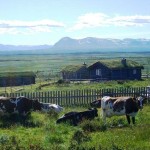 ntainous and Remote Areas)
ntainous and Remote Areas)
RUMRA was created in 2015 as a response to the growing needs of those living in non-urbanised areas of Europe, which are often underrepresented in public dialogue. The Intergroup is a forum for policymakers and civil society to discuss initiatives and legislation which could have an impact on the well-being and future of more than 113 million people living in the areas we represent.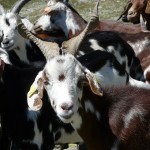
The intergroup has been initiated by Ms. Mercedes Bresso, Member of the European Parliament (MEP), the Chair of the Intergroup, and three grass-root organisations: Euromontana, Rurality – Environment – Development (R.E.D) and the Future of Rural Energy in Europe (FREE initiative). The intergroup is advocating for a Rural Agenda
- Read RUMRA’s brochure “Towards a Rural Agenda”
- Read the COR’s brochure supporting the need for a white paper on rurality
European Countryside Movement
The European Countryside Movement (ECM) is a platform open to international NGOs, like Euromontana.
The main objectives of ECM are to promote an integrated rural development policy mobilising and involving the interests of all sectors and to contribute to improvement of the overall quality of life of rural populations, and to preserve their autonomy of action.
FAO Family Farming
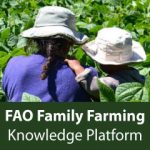 Euromontana participates in the FAO Family Farming Knowledge Platform. The Platform gathers digitized quality information on family farming from all over the world; including national laws and regulations, public policies, best practices, relevant data and statistics, researches, articles and publications.
Euromontana participates in the FAO Family Farming Knowledge Platform. The Platform gathers digitized quality information on family farming from all over the world; including national laws and regulations, public policies, best practices, relevant data and statistics, researches, articles and publications.
Studies
Development of rural territories
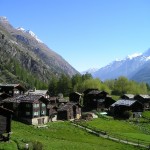 In the framework of the work on the law for development of rural territories, the French Ministry of Agriculture has financed three studies between 2006 and 2009 respectively on:
In the framework of the work on the law for development of rural territories, the French Ministry of Agriculture has financed three studies between 2006 and 2009 respectively on:
- Services of general interes: see the final report
- Challenges of pastoralism: see the final report
- Collective initiatives in the field of culture and heritage: see the final report
Agriculture and environment
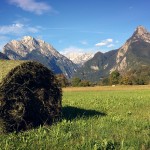 In 1997, immediately following its creation, Euromontana conducted for DG Environment of European Commission a reference study on the integration of environmental concerns in mountain farming. Studies for each mountain range were carried out and published. This work is available for consultation at the Secretariat in Brussels.
In 1997, immediately following its creation, Euromontana conducted for DG Environment of European Commission a reference study on the integration of environmental concerns in mountain farming. Studies for each mountain range were carried out and published. This work is available for consultation at the Secretariat in Brussels.
Events
- Two seminars were organised by Euromontana in the framework of the reflection on the future of the CAP after 2013:
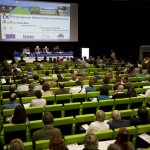 22-24 October 2014 | IXth European Mountain Convention, “Quality from the mountains: prosperity for people and territories”, Bilbao, (Spain).
22-24 October 2014 | IXth European Mountain Convention, “Quality from the mountains: prosperity for people and territories”, Bilbao, (Spain).
- 10, 12, 16 and 18 of July 2014 | “ A new CAP: which are the opportunities for the development of mountain supply chains?“, 5 national seminars in France, Slovenia, Romania, Italy and Portugal.
- 6-7 June 2013 | Conference “Inspiring programming for living European mountains by 2020”, Rome (Italy), in collaboration with the Italian National Rural Network
- 14-16 October 2009 | Conference “Europe’s mountain bonus: how communities and land management produce positive externalities to European society and the related policies and opportunities”, Arantzazu, (Spain)
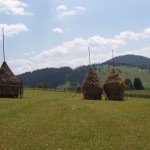 7 October 2009 | Seminar “The future of mountain livestock farming: a territorial and economic challenge for Europe”, Clermont-Ferrand (France), seminar co-organised with SIDAM on the occasion of the Livestock summit
7 October 2009 | Seminar “The future of mountain livestock farming: a territorial and economic challenge for Europe”, Clermont-Ferrand (France), seminar co-organised with SIDAM on the occasion of the Livestock summit- 26 June 2008 | Seminar “The CAP health check and the future of the CAP”, Brussels (Belgium), co-organised with the Basque government.
- 4-5 October 2007 | Conference “Towards integrated Mountain Areas Development and its recognition in the Common agricultural policy – Shaping the New European Space “, Piatra Neamt (Romania)
Projects
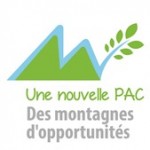 Project “A new CAP: mountains of opportunities” (2014)
Project “A new CAP: mountains of opportunities” (2014)
“A new CAP: mountains of opportunities” is an information campaign on the new Common Agricultural Policy for the 2014-2020 period for mountain rural stakeholders. The project was co-financed by the Directorate General of Agriculture and Rural Development of the European Commission.
FAO project Sustainable Agriculture and Rural Development in Mountain areas (2005-2010)
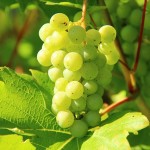 Euromontana was partner and focal point for Europe of the FAO project » Sustainable Agriculture and Rural Development in Mountains (SARD-M) from 2005 to 2010.
Euromontana was partner and focal point for Europe of the FAO project » Sustainable Agriculture and Rural Development in Mountains (SARD-M) from 2005 to 2010.
- Learn more on SARD-M
- See the memorandum on mountain positive externalities











